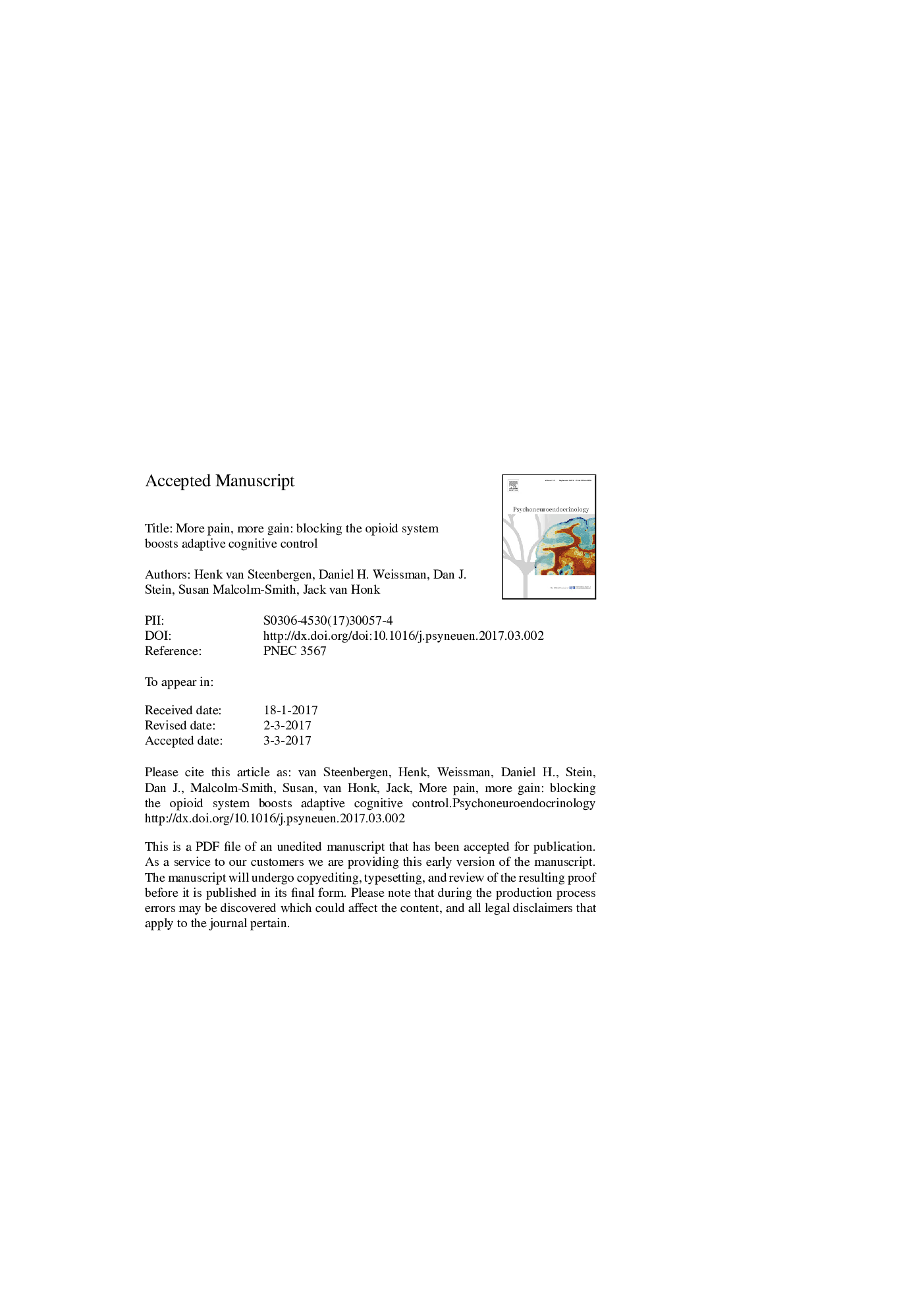| Article ID | Journal | Published Year | Pages | File Type |
|---|---|---|---|---|
| 4934456 | Psychoneuroendocrinology | 2017 | 22 Pages |
Abstract
The ability to adaptively increase cognitive control in response to cognitive challenges is crucial for goal-directed behavior. Recent findings suggest that aversive arousal triggers adaptive increases of control, but the neurochemical mechanisms underlying these effects remain unclear. Given the known contributions of the opioid system to hedonic states, we investigated whether blocking this system increases adaptive control modulations. To do so, we conducted a double-blind, placebo-controlled psychopharmacological study (n = 52 females) involving a Stroop-like task. Specifically, we assessed the effect of naltrexone, an opioid blocker most selective to the mu-opioid system, on two measures of adaptive control that are thought to depend differentially on aversive arousal: post-error slowing and conflict adaptation. Consistent with our hypothesis, relative to placebo, naltrexone increased post-error slowing without influencing conflict adaptation. This finding not only supports the view that aversive arousal triggers adaptive control but also reveals a novel role for the opioid system in modulating such effects.
Related Topics
Life Sciences
Biochemistry, Genetics and Molecular Biology
Endocrinology
Authors
Henk van Steenbergen, Daniel H. Weissman, Dan J. Stein, Susan Malcolm-Smith, Jack van Honk,
